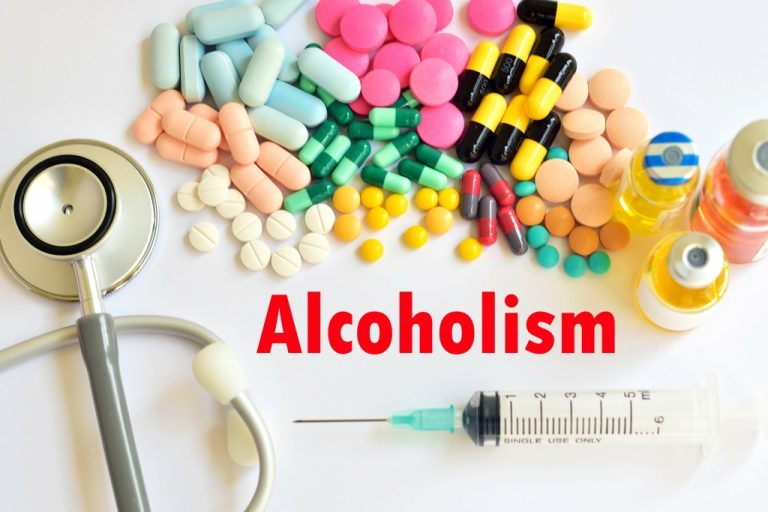Having more than one drink a day could also increase the risk for high blood pressure in those with diabetes. It is critical to drink enough fluids to aid the healing process. Certain medications and substances can also harm the kidneys. Nonsteroidal anti-inflammatory drugs (NSAIDs), certain antibiotics, and contrast dyes used in imaging can pose risks. Always discuss your medications with a healthcare provider to understand potential kidney impacts.

If discovered early enough, kidney disease can be treated, and you may even be able to have a complete recovery. Over time, alcohol abuse can and will take everything good out of your life. It can drain your accounts, ruin your relationships, destroy your career, and cost you your family. While these discussions usually revolve around the liver, which is important, it’s also vital to know how the kidneys are impacted by alcohol use. In fact, most liver damage is directly mirrored by the kidneys, and vice versa. The Recovery Village at Palmer Lake offers comprehensive addiction treatment for drug and alcohol addictions and co-occurring mental health conditions.
How Alcohol Promotes Chronic Kidney Disease
- Moderation is important for those who choose to drink, and for many, limiting or avoiding alcohol can be beneficial.
- Most of the acid-base problems that occur with alcohol consumption are ones involving too little acid.
- In addition, excess fluid accumulates in spaces between cells, clinically manifested as swelling (i.e., edema) of the lower back and legs.
- This can damage blood vessels, including those supplying the kidneys.
These interruptions can cause a cascade of problems in the body. For instance, too much sodium can cause high blood pressure while too little magnesium harms the nervous system, and there are many more issues; too many to list Drug rehabilitation them all. Magnesium deficiency can result in migraine headaches, hypertension, osteoporosis, and may even lead to Type II Diabetes. Binge drinking (four or more drinks for women, five or more for men within two hours) carries acute risks. This pattern can lead to rapid dehydration and sudden blood pressure fluctuations.
Short-Term Effects of Alcohol on Kidneys
Once this process is done, the end product results in urine and is deposited in the bladder. It is similar to how alcohol affects sodium and potassium levels. Drinking too much alcohol can weaken the immune system, making the body a much easier target for disease. Drinking a lot on a single occasion slows the body’s ability to ward off infections–even up to 24 hours later. Regular physical activity helps maintain a healthy weight and control blood pressure.
Alcohol Addiction—How to Find the Right Treatment Program
- Research indicates that abstaining from alcohol for at least four weeks can help restore kidney function in many cases.
- If you have concerns about your drinking habits, it’s wise to consult a healthcare provider.
- Anyone can be at risk of potential kidney disease, but maintaining a healthy lifestyle can dramatically decrease your risk.
- For some people, occasional drinking may not lead to immediate kidney issues, but for others, even moderate drinking can accumulate damage over time.
- High blood pressure damages the blood vessels in the kidneys, reducing their efficiency in filtering blood (15).
Alcohol use that causes kidney damage strongly indicates that you have an unhealthy relationship with alcohol that requires attention. Your doctor will likely recommend alcohol addiction treatment so that you avoid damaging your kidneys again in the future. Autoimmune diseases like lupus (Systemic Lupus Erythematosus) can affect the kidneys by causing inflammation. A 2022 study found that those who eat a lot of processed foods had a 24% higher risk of kidney disease.
Cancer
But if you find yourself drinking heavily or does alcohol kill kidneys binge drinking often, consider reaching out for help. This can become chronic for some individuals with heavy alcohol use. Like the liver, excessive alcohol consumption can damage the pancreas. One study found that light drinking did not elevate blood pressure.

The kidneys filter waste products and excess fluid from the blood, regulate blood pressure, and maintain the body’s balance of water, salts, and minerals. Many people wonder if consuming alcohol can harm these important organs. Excessive or chronic alcohol consumption can negatively impact kidney function. Long-term, heavy alcohol use can lead to acute kidney injury, chronic kidney disease, and kidney failure.
When hyperoxaluria is linked to increased gut absorption of oxalate, restriction of oxalate is helpful to your kidneys. Studies have shown that 50 percent of individuals with idiopathic hyperoxaluria and medical history of kidney stones can reduce urinary oxalate. Though it may seem hard to ingest too much fluid, it’s inclusive of all beverages, foods with high water content, and soups. It’s also worth of note that almost all foods contain fluids, with some fruits and vegetables being approximately 90% fluid.
This transfer of phosphate out of muscle cells and into the bloodstream results in an increased amount of phosphate passing through the kidneys’ filtering system. In response, reabsorption of phosphate diminishes and excretion in urine increases in an effort to https://www.iexp.us/websites/drsimon/relapse-risk-factors-recognizing-internal-and-2/.html return blood levels of this ion to normal. Alcohol can produce urine flow within 20 minutes of consumption; as a result of urinary fluid losses, the concentration of electrolytes in blood serum increases.
Can drinking cause kidney cancer? Risks and preventions
- At The Recovery Village Indianapolis, we offer compassionate, comprehensive programs to help individuals recover from alcohol addiction and protect their kidney health.
- Table salt is a very common staple in many households all over the world but is considered to be the least healthy type of salt.
- In other words, the kidneys’ ability to excrete excess fluid by way of dilute urine is impaired, and too much fluid is reabsorbed.
In other words, the kidneys’ ability to excrete excess fluid by way of dilute urine is impaired, and too much fluid is reabsorbed. Hyponatremia probably is the single most common electrolyte disturbance encountered in the management of patients with cirrhosis of the liver (Vaamonde 1996). Both of these factors affect hormones that regulate kidney function, just as changes in fluid volume and electrolyte balance do. Alcohol can induce abnormally high phosphate levels (i.e., hyperphosphatemia) as well as abnormally low levels. Alcohol consumption apparently leads to excessive phosphate levels by altering muscle cell integrity and causing the muscle cells to release phosphate.
How Does Alcohol Affect Kidneys?
Ensuring that you strictly follow the instructions about drinking fluids before going for the tests will help you. Don’t delay to find out from the doctor when it would be suitable to stop taking certain painkillers. It’s normal to take painkillers whenever you are feeling pain. Most people take these painkillers without realizing the long-term side effects that they can cause.
Anytime a substance like alcohol is consumed, there are immediate effects and effects that can build up over time. Both of these effects can play a role in our overall health, so it’s important to be aware of them. Remember, most of the effects of alcohol on your brain are reversible with a bit of time. Consuming alcohol while pregnant can cause permanent damage to the developing brain and other organs of the fetus. It can also result in fetal alcohol spectrum disorders (FASDs). Heavy drinking can also lead to a thiamine deficiency, which can cause a neurological disorder called Wernicke-Korsakoff syndrome.
